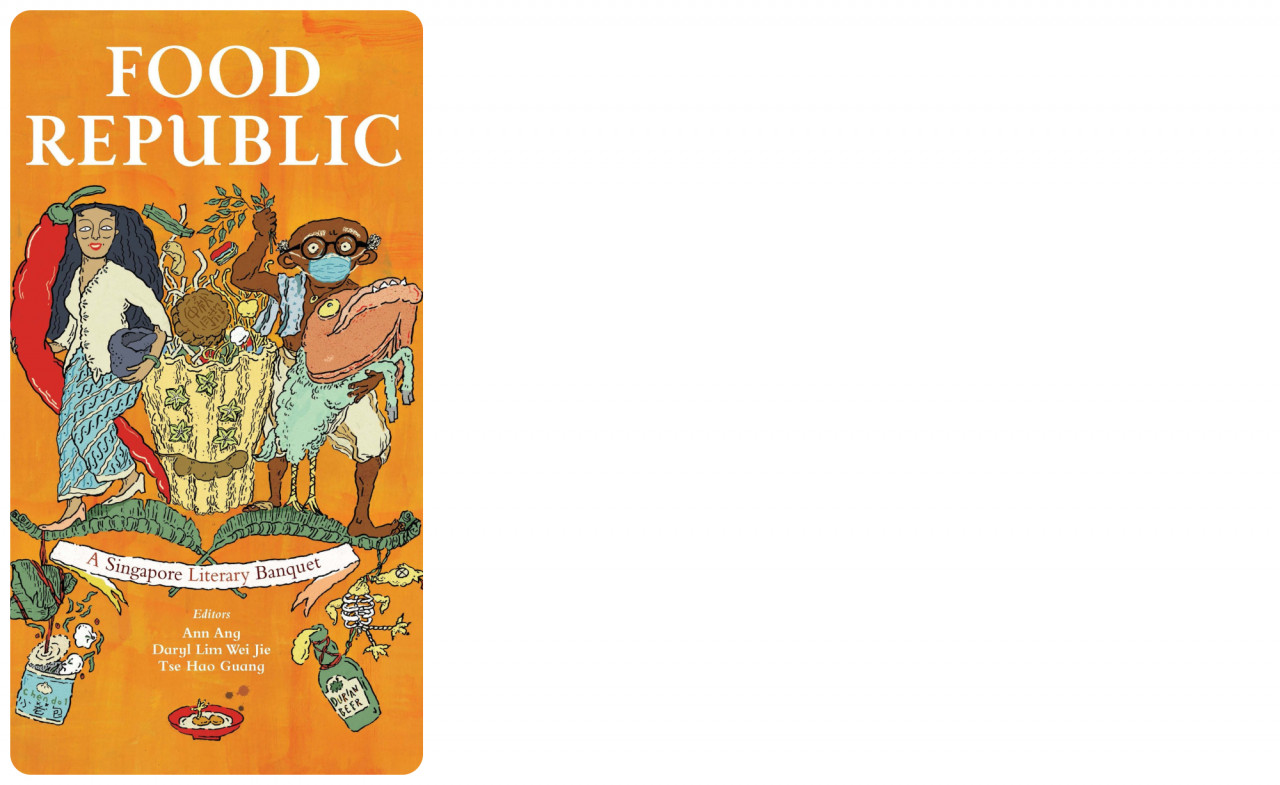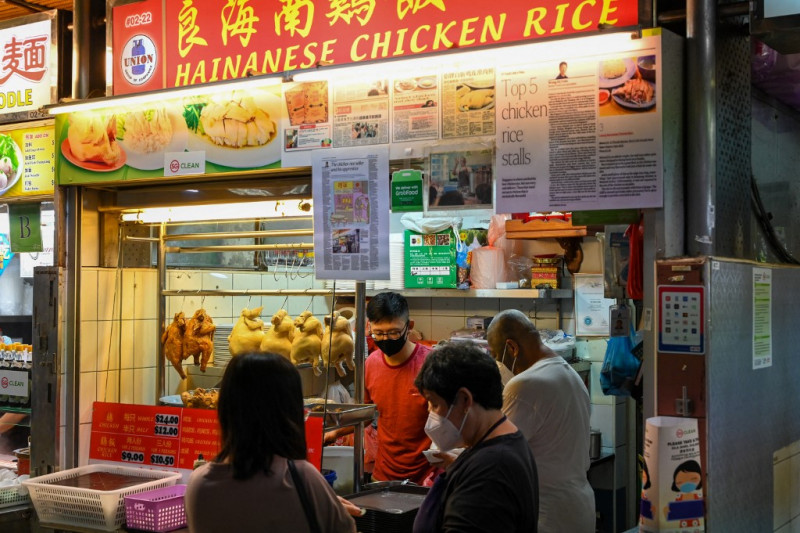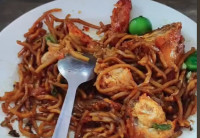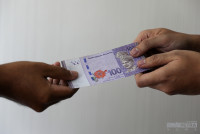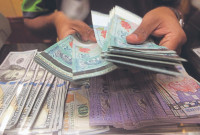AVOIDING the limits on free speech that plague so many Southeast Asian countries, and sidestepping the contentious and triggering issues of local, regional, and even personal politics, food is a safe topic, or so it might appear on the face of it, a gustatory glue creating and cementing common connections where other socio-cultural ties may be more fragile, loosely knotted, or even non-existent.
Everyone has to eat. It is something we share as humans. No one can escape the need for nutrition.
But food is more than mere fuel, much more. It is bound up with culture and craving and comfort and climate, with identity and intimacy, and increasingly, isolation.
Singapore’s street food recently gained Unesco recognition, inscribed in the approved annals of humanity’s cultural patrimony, raising envy, ire, and hackles on the other side of the Causeway, with flocks of indignant internauts taking exception, insisting that Singapore’s hawker culture is borrowed from its neighbours, or misappropriated, even stolen, like a loaned library book, taken and read, but never returned, undeserving of its place on the bookshelf where it now proudly sits.
Perhaps food isn’t such a safe subject after all?
But for the most part these trans-regional claims are light-hearted banter, and even the most patriotic defender of Malaysia’s own impressive range of street food will be hard-pressed to refute that the island republic’s hawker food is prepared in more hygienic conditions, subject not only to stringent regulation, but actual enforcement.
Whatever debate there may be over authenticity or appropriation, there is far less room to question matters of food safety.
In any case, there is enough common ground that Malaysian readers will recognize and enjoy the self-proclaimed literary banquet contained between the covers of ‘Food Republic’.
Readers familiar with Singapore’s literary scene will also recognize the names of many of the contributors featured here, with writers like Amanda Lee Koe, Ng Yi-Sheng, Cyril Wong, Alvin Pang, and Edwin Thumboo being among the most instantly recognisable of the almost sixty scribes whose work features here.
Most pieces are short, some barely a page long. There is a preponderance of poetry, but of the accessible kind, free verse that gives up its meaning easily.
Many pieces read as personal, even confessional, with family histories revealed in snapshot. Some are purely about food, while many use the subject as a Proustian springboard, the recalled smells and tastes opening doorways and passages to the past.
For the reader that springboard may be a smorgasbord, a buffet of nibble-sized morsels, some that require a little more chewing than others, and those that border on cloyingly sweet, or bittersweet.
The emotional component of food is ever-present, and probably inevitable. There are sad stories and painful memories evoked.
Food is so much more than nutrition, and this trail leads the reader to explore many winding alleys and broad avenues, popping into the intimacy of childhood kitchens, or carrying coral-pink plastic bags of takeaway memories.
Even for a reader unfamiliar with Singaporean food, or regional food, there is a lot to like here, and even a lot to learn, perhaps about food, but also through its specificities, about the universality of the human condition. Any book that can do that is a book well worth reading, and ‘Food Republic’ is many things, but certainly that.
It is not necessarily a book to be read from cover to cover in one sitting. That would be gluttony. Instead it is better savoured episodically, one or a few dishes at a time.
It is also – and this is an important warning – not a book to keep by the bedside with the intention of savouring a short story or poem before sleep.
The only possible outcome for the reader in this scenario is finding themselves late at night standing in front of an open refrigerator, or rummaging through the pantry in search of something to satisfy the appetites this book might arouse.
With its colourful cover, and its illustration backgrounded by a particularly pleasing shade of warm ochre, it is a book that asks to be picked up. But once the cover is opened, the reader is immediately met by the book’s weakest feature: the typeface pitch, which is ridiculously and eye-ruiningly small.
Even this reader’s strongest reading glasses weren’t up to the task, and for a while the distorting lens of a magnifying glass was the filter through which these stories and poems were read.
Harsh daylight helped, but this reading process was hindered by attendant headaches from a combination of the bright glare off the white pages and a touch of sunstroke.
This is a subjective experience that may have been remedied by a visit to the nearest optician, were they permitted to open, but also one not encountered with any other of the many books on this reader’s current reading list.
In defence – a direct and unprompted quote from the Malaysian half of this reader’s small household: Aiyoh! So small writing one! How to read lah?
Many of the pieces included in ‘Food Republic’ have been previously published elsewhere, dozens in fact, but uniting them together in one volume along with previously unpublished work makes for a very complete anthology.
Food as a topic is relatable, as are almost all the stories and poems the editors have chosen to put on the menu. Throughout, the standard of writing is very high.
Though most of the writers included are, unsurprisingly, Singaporean, a few are from a little further afield, with the Malaysian contingent represented by writers like Kedah-born Australian-based Sreedhevi Iyer and Malacca-born US-based Shirley Geok-lin Lim.
Given the vast array of talent on display here, it is impossible to deal with all, or even many of the contributions. Instead, to conclude this review, singled out for attention is a poignant short story by Anitha Devi Pillai, titled, ‘How Do You Want Your Dumplings?’
In some ways this story is representative of all, or most of the rest of the content in ‘Food Republic’, in that it is well-written, deals with food, and tells the reader something about Singapore and Singaporean identity.
But there’s more at play here. For a start it is one of the longer pieces, allowing space for a greater depth of character and story. It offers a deeper probing of identity in the hyphenation of Indian-Singaporean or Singaporean-Indian.
The main character is simultaneously connected yet removed from her ancestral roots in Kerala, yet bound by tradition, two snakes, and astrological readings, to enter into an arranged marriage.
This short story is bookended by scenes in Singaporean eateries, sandwiching years of hopes and fears, where Singaporean food plays and performs a transformative role.
To reveal more would be to give spoilers. To read more, check out the book. – The Vibes, February 20, 2021
